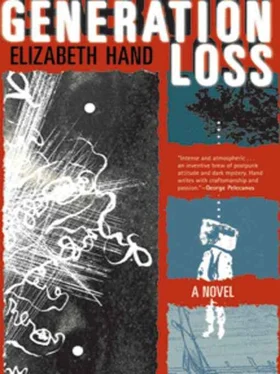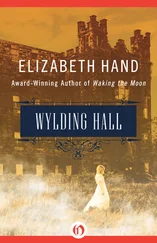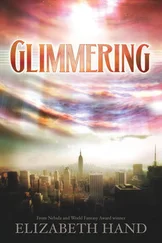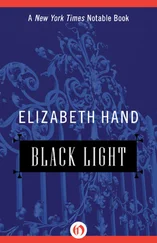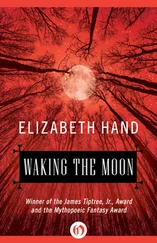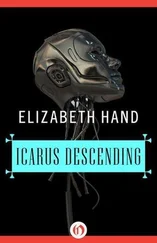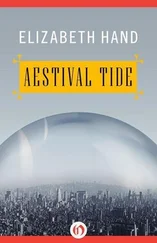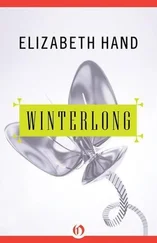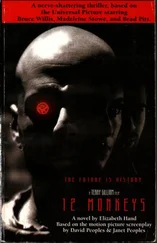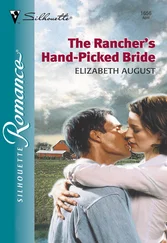“You’re going to have a scar there,” the ER doctor told me.
I stared into the mirror, at a black starburst of stitches and dried blood beside my right eye.
“Souvenir of Vacationland,” I said.
I was released around three am. They kept Kenzie overnight then released her the next morning to her father and the ministrations of local law enforcement.
I spent the rest of the night with the state police. So did Toby. There were a lot of questions, especially for me, and I gathered there’d be more once the FBI arrived and investigators saw what was in the trees on Tolba Island. I didn’t want to think about what they’d find in the quarry, or that clearing.
I was beyond exhaustion. And I felt a sick pang, that I hadn’t saved Denny’s book. All that terrifying beauty, lost. Only glimpses would remain, in the pictures Ray had, and Lucien Ryel.
But they were like postcards of the Taj Mahal. And I’d seen the real thing.
Denny Ahearn had created an entire world out there with his turtle shells and daguerreotypes, his mangled home religion and tormented attempts to reclaim something from the death of the girl he had loved all those years ago. It was a horrifying world, but it was a real one. How many of us can say we’ve made a new world out of the things that terrify and move us? Aphrodite tried and failed.
Monstrous as he was, Denny was the real thing. So was his work. He really had built a bridge between the worlds, even if no one had ever truly seen it, besides the two of us. Now it was up to me, to carry the memory of the dead on my back.
* * *
It was dawn when Toby finally drove me to the Lighthouse.
“Here.” He handed me my camera. “I figured you’d want this.” As I turned it to the light, he added, “No one’s seen it. Didn’t seem like it was their business.”
The sign in front of the motel now read no vacancy. Merrill had arranged for us to be given cabins in the woods behind the motel, rather than the rooms near the main road.
“In case reporters start showing up,” explained Toby. He looked drawn and exhausted, but also immeasurably sad. “Be a little harder for them to find us there.”
“That’s thoughtful of him.”
“Merrill’s not a bad guy. I told you that. I should have, anyway.” He looked at me and shook his head. “You should get some sleep.”
“Yeah. You too,” I said and stumbled inside.
Sunlight leaked through the blinds as I locked the door. I kicked my boots off and set them atop the heater, downed the last two Percocets and fell into bed. I slept like the dead, dreamless, mindless. When I finally woke, it was night again.
* * *
I spent the next two days in a daze: no booze, no drugs. A lot of time giving statements to various law enforcement officials. A background check brought up the time Christine had called the police on me for domestic assault, but as she’d never pressed charges no one could run with that. Toby and Suze vouched for my whereabouts and everything I’d done during the time since MacKenzie Libby went missing. Toby made no mention of me slipping him a Mickey. There were a few raised eyebrows and some unpleasant moments—I’ve never been good at interviews—but there was no arguing with the fact that Kenzie was alive and safe, and that she wouldn’t have been if I hadn’t intervened. I gave all my pertinent contact information and was told I could go, for now.
The press had a field day. Within hours the incident had leaked to the national media, with headlines like photo finish and silence of the snapping turtles. Denny’s story had nearly everything—murders, abductions, madness, art. Best of all, a teenage girl who survived to tell the tale—though not, it turned out, to the tabloids. Merrill Libby surprised me again by taking a relatively hard line with any exploitation of his daughter. There was an exclusive interview with the Bangor Daily News , and that would be it. For now, anyway. Kenzie was in counseling; she’d been sent to stay with relatives near Collinstown for a few days. Merrill had been in touch with her mother for the first time in several years.
The wreckage of the Boston Whaler was recovered. Denny’s body was never found, despite divers who searched the frigid waters off Tolba Island. This further complicated things as far as the investigation went.
All this must have been terrible for Gryffin. I still hadn’t seen him. Toby said he was caught up with the details of his mother’s funeral, as well as with the nightmare of learning his father was a compulsive murderer. It was unnerving to think that, in the space of a few days, I had effectively orphaned him.
I’d also insured that the youth of Paswegas County would be provided with a campfire story for years to come. Toby told me the locals were already referring to Denny as The Mad Hatter, after I’d explained to the investigators about the contents of Denny’s darkroom. All artists crave some kind of immortality. Denny Ahearn had achieved his. Unless, of course, he really was too tough to die.
The night after Kenzie’s rescue, I finally called Phil Cohen back in the city.
“Cassandra Android! There’s a horrible picture of you in the Daily News! What the hell happened up there?”
I gave him a thumbnail account. “Thanks for doing me another favor, Phil.”
“Jesus,” he said. I could hear the city around him—traffic, voices. Even at this distance, it sounded impossibly loud, compared to the wind and crying gulls above Burnt Harbor. “Hey, Neary—tell me there’s no causal relationship between all this shit and your being there?”
“No causal relationship whatsoever.”
I could tell from the silence that he didn’t believe me.
“So,” he said at last. “Did you at least get an interview before the old lady kicked?”
“Nope.”
“Photos?”
“Uh-uh.”
“So what the hell did you do up there? I mean, other than saving the kid.”
“Not a lot, Phil,” I said. “Listen, does this mean I don’t get a kill fee?”
“A kill fee?” He laughed. “I’ll see what I can do, okay? You could bank this story, you know that, right? You and the girl, that’s real Scary Neary shit, you could really—”
“Forget it,” I said. “I’ve gotta go. I’ll be back in a few days; I’ll call you.”
“Wait—!”
I hung up.
The following morning, Merrill Libby came to my cabin and said that Kenzie wanted to see me.
“What you did.” He stood outside the door, sweating even though it was starting to snow. “That was a good thing, Mrs. Neary.”
“It’s Ms. Neary.” I took his outstretched hand and shook it tentatively. “But thanks.”
Late that afternoon, Toby drove me to Collinstown. Heavy wet snow splattered the windshield as we crept along a gravel road. The pickup’s tires were bald, so we went very slowly. The house was a new modular, surrounded by scraped earth sifted white and starred with children’s footprints. Kenzie opened the door.
“Hey,” she said shyly.
Her aunt and cousins looked just like Merrill. But they were friendly and didn’t ask me any questions.
“Kenzie’s staying in Shannon’s room,” her aunt said. “I told Shannon to give you some privacy.”
She turned and told the kids to keep it down. Toby settled with them on the couch to watch TV.
“Thanks for coming,” Kenzie said as we walked down the hall. “I’m going kind of crazy here. They’re nice, but…”
We entered a small room. Pink walls, pink cartoon-patterned sheets, one bed and a sleeping bag on the floor. I sat on the bed. Kenzie flopped onto the floor and picked up a black vinyl CD case. She wore a new red hoodie with Tinkerbelle printed on it. The fretwork of scars on her face had already begun to fade, and while there were dark circles under her eyes, her cheeks were pink. When she looked at me, she smiled.
Читать дальше
